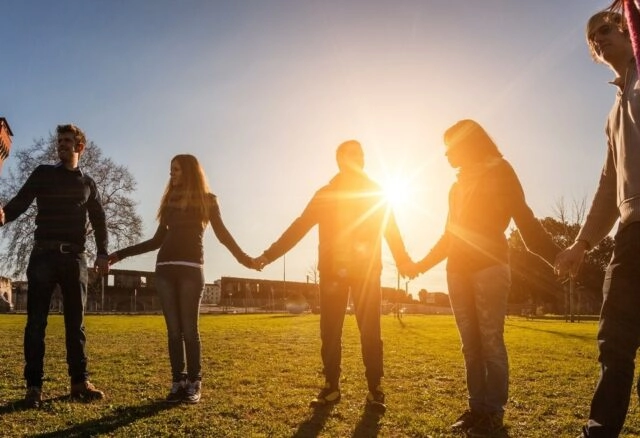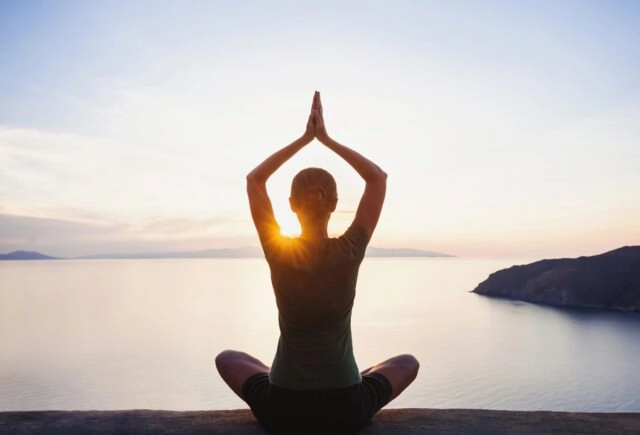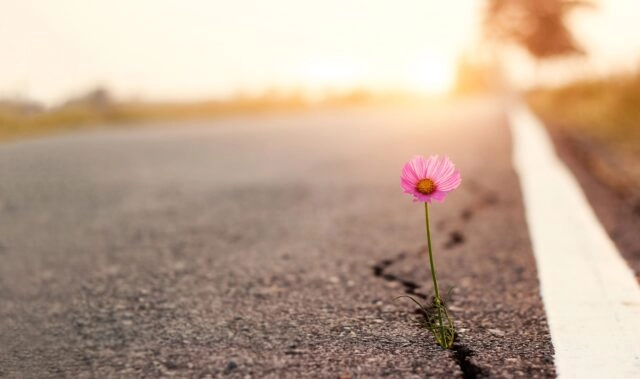Many people view Hawaii as an idyllic paradise—the perfect destination for a relaxing vacation. While there is truth to this (the archipelago is certainly beautiful), Hawaii is so much more than a picture-postcard.
The islands were shaped by volcanic activity millions of years ago and are home to six active volcanoes. The Hawaiian people have had to contend with much adversity: annexation, oppression, and epistemic violence. Now a new generation of Hawaiians is suffering as a result of multigenerational trauma, discrimination, and systemic poverty. For the Hawaiians, protecting their values is crucial, as this systematic review concluded:
“These studies emphasized the importance of family, spirituality, connection to place, and cultural identity for mental and emotional well-being, as well as the inclusion of culture in interventions.”
However, like the titanic forces that forged their homeland, this long-endured adversity hasn’t weakened the Hawaiians’ cultural identity, but has, instead, strengthened it. Despite all they’ve suffered, the positive traits associated with the Hawaiian people—peace, kindness, connection to nature, and hospitality—have continued to flourish.
It is a testament to the power of their traditions that they’ve survived through so much. Few cultures have proved as resilient as the ka moʻolelo Hawaiʻi (The Hawaiian story). So, when we consider how to deal with stress and adversity, Hawaiian culture and practices have a lot to teach us.
The Aloha Spirit
“Aloha aku no, aloha mai no.”
“I give my love to you, you give your love to me.”

Perhaps the most well-known Hawaiian concept, the Aloha Spirit is a way of life that emphasizes love, compassion, and kindness. “Aloha” is used both as a greeting and farewell, but the term encompasses much more.
The Hawaiian philosopher Pilahi Paki said that Aloha isn’t only a definition, but a legacy of Hawaii and its ancestors. It embodies deep-rooted beliefs about peace, community, and spiritual truth. It goes beyond Hawaii, expressing hopes for a harmonious future extending to the entire world
Among other meanings, the Aloha Spirit represents love, respect, reciprocity, mindfulness, strong relationships, and gratitude.
By being present in each moment and appreciating the beauty in our surroundings, we cultivate emotional strength and harmony with ourselves and others. Gratitude helps shift our focus from negative to positive aspects of our lives. It reminds us of the love, support, and resources available to us.
This outlook, in turn, strengthens our resilience in the face of adversity. The Aloha Spirit also encourages acts of kindness and service to others, creating a sense of unity and interconnectedness that buffers against stress.
Ohana
“Aloha kekahi i kekahi.”
“Love one another.”

Community is a vital aspect of all cultures, but it is particularly important for the Hawaiian people. Ohana is often translated to “family”, however, like many Hawaiian terms, the word has far deeper meaning. By embracing Ohana, you cultivate a sense of familial care and devotion, not only to your own loved ones, but to all members of the human family.
The research is clear that social support is essential for health and wellbeing. By surrounding yourself with a supportive network of loved ones, friends, and community members, you create an environment in which you can lean on others during challenging times. This sense of belonging and connection fosters a feeling of safety and stability, helping you navigate life’s ups and downs with greater resilience.
When you nurture your Ohana, you’re also investing in open communication and mutual trust. By sharing your thoughts, feelings, and experiences with those around you, you create an opportunity for emotional release and validation. Expressing yourself and knowing that you’re being heard and understood can provide a sense of relief from the weight of stress.
So, when times get rough, it’s crucial to remember your Ohana is there to provide encouragement and practical support. Whether it’s a listening ear, a helping hand, or a shoulder to cry on, your Ohana serves as a reminder that you don’t have to face life’s challenges alone. This supportive network not only helps you navigate stressful situations but also empowers you to grow and develop resilience in the face of adversity.
Ho’oponopono
This deceptively simple Hawaiian practice helps to foster reconciliation and forgiveness. It’s comprised of four key phrases:
- I’m sorry.
- Please forgive me.
- Thank you.
- I love you.

Studies show that stress and shame are closely interlinked. Oftentimes, when we feel responsible for causing a loved one’s pain, shame can prevent us from reconciliation. What’s more, that same shame can be a roadblock to self-forgiveness—a core component of recovery.
Acknowledging your role in stressful situations, as well as expressing gratitude and appreciation for yourself and others, can be incredibly liberating. Rather than dwelling on problems or perceived shortcomings, you can use Ho’oponopono to facilitate a shift in perspective; one that fosters a positive focus that can alleviate stress.
Like so many other Hawaiian practices, Ho’oponopono is multifaceted and imbued with the core values the islanders hold dear. This ancient prayer helps build stress resilience by allowing you to cultivate self-awareness, emotional healing, gratitude, and self-compassion.
Aloha ʻĀina
“Nānā i ke kumu.”
“Look to the source.”

“Aloha ʻĀina” translates to “love of the land.” In Hawaiian tradition, the land, or ‘āina, is considered sacred and is intrinsically linked with the people’s identity and well-being.
There is now mounting evidence suggesting nature helps to alleviate stress, and the Hawaiians have known this intuitively for centuries. By honoring the environment and appreciating the unique beauty and abundance of Hawaii’s diverse ecosystems, you can develop a sense of gratitude and respect for the natural world that surrounds you. This gratitude can shift your focus from life’s challenges to its blessings, allowing you to find solace and tranquility in the midst of stress.
There are many ways to explore the concept of Aloha ʻĀina, whether it’s through hiking on ancient trails, participating in traditional farming or fishing methods, or attending cultural ceremonies that honor the land and its resources. By immersing yourself in the sights, sounds, and scents of the outdoors, and embracing the wisdom and values of Hawaiian culture, you can leave behind the distractions and demands of daily life, making space for relaxation and reflection.
This reconnection with nature can help clear your mind, allowing you to approach challenges with a fresh perspective and a renewed sense of purpose.
Moreover, integrating the concept of Aloha ʻĀina into your daily life can help you foster a deeper understanding of the interconnectedness of all living things. In Hawaiian culture, the environment, the people, and their ancestors are all intertwined, creating a powerful sense of belonging and responsibility.
By nurturing this connection to the land and embracing the spirit of Aloha, which encompasses love, compassion, and respect for others, you can strengthen your emotional and spiritual well-being. This holistic approach not only enhances your stress resilience but also enriches your overall experience of the world around you.
Mana
“ʻAʻohe hana nui ke alu ʻia.”
“No task is too big when done together by all.”

This sacred term is associated with spiritual power, lifeforce, energy, and strength. True to Hawaiian culture, Mana covers a range of meanings lost in translation For example, Mana isn’t only present in people but objects and places too: locations like Haleakala volcano on Maui, as well as different battle sites across the islands, are considered high in Mana.
It’s important to remember that the Hawaiian concept of power doesn’t equate to an abundance of material possessions. It is a life energy that flows through everything, humans included. Similar to the concept of “karma”, Mana may be gained or lost with everything you do. By living through pono (good relationships, meaningful work, and service to your community) you acquire Mana.
By understanding and embracing Mana, you can harness your own inner strength and develop greater stress resilience. Mana is everywhere—the sea, the sky, the mountains, and within yourself—and nurturing this energy can help you feel more grounded, balanced, and connected to the world around you. This can provide a sense of stability amidst life’s challenges.
By focusing your thoughts and energy on positive and creative endeavors, you can cultivate your inner Mana, empowering yourself to face adversity with courage and determination. When stress arises, remember that you have the power within you to persevere and overcome any obstacles, drawing on the strength and wisdom of your ancestors and the natural world.
Remember, Mana isn’t confined to the individual; it is about unity. It is as much about cultivating inner strength as it is about respecting and honoring the Mana present in others and the environment. It means maintaining harmonious relationships with people, the land, and the elements. By tapping into the Mana that permeates the entire Universe, and performing good deeds, you gain access to a boundless wellspring of inner strength.
How Maui Recovery Can Help

Incorporating the principles of Mana, Aloha ʻĀina, and Ohana fosters conditions ripe for transformation and healing. These overlapping Hawaiian practices enable you to cultivate a deeper connection with yourself, your community, and the entire Universe, empowering you to face life’s challenges with newfound strength and inner peace.
At Maui Recovery, we respect and honor the power of Hawaiian culture. Our holistic approach to recovery includes our own brand of Ohana: a nurturing environment emphasizing the importance of connection, community, and mindfulness.
Through personalized treatment plans and expert guidance, Maui Recovery can offer you a unique and effective path to healing, growth, and lasting resilience. Let us help you harness your inner Mana, and guide you on your journey toward a balanced and fulfilling life.
To learn more about how we approach stress management, and how we can help you or a loved one, please contact us today.









